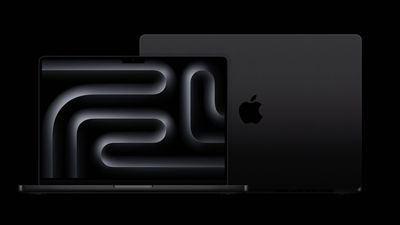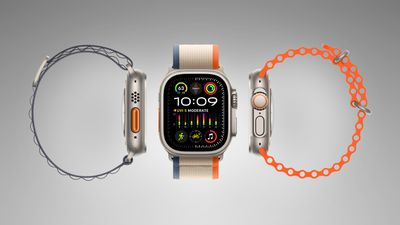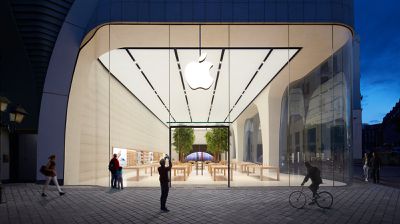The iPhone 16 Pro and iPhone 16 Pro Max are Apple's latest flagship devices, offering over 45 changes and improvements compared to their predecessors. Here's everything that's changed.
The iPhone 16 Pro is an incremental update in some respects, but there are still some important improvements to consider. Key enhancements include larger displays with thinner borders, faster and more efficient chips, and camera advancements like the new Camera Control button. The iPhone 16 Pro also boasts extended battery life, faster
MagSafe charging, and improved audio recording capabilities.
This comparison guides you through each area of improvement, from design changes to technical enhancements, helping you decide if the iPhone 16 Pro is worth the upgrade.
Design and Displays
The iPhone 16 Pro builds on the iPhone 15 Pro's design by introducing several key enhancements, particularly in the display and materials. While both models feature a premium titanium frame, the iPhone 16 Pro comes with a new blasted titanium finish that offers a more refined texture. One of the most noticeable changes is the larger display size, with the iPhone 16 Pro increasing to 6.3 inches and the Pro Max to 6.9 inches, while also reducing the borders by 30%. The minimum brightness has been improved to just 1 nit, making the display better suited for low-light environments.
The iPhone 16 Pro also features a next-generation Ceramic Shield front glass that's twice as strong as the one on the iPhone 15 Pro. Apple has improved thermal management in the iPhone 16 Pro, leading to a 20% boost in heat dissipation, which helps sustain performance during demanding tasks. A new Desert Titanium color replaces the previous Blue Titanium option, and the other colors are slightly tweaked too.
| iPhone 15 Pro |
iPhone 16 Pro |
| Brushed titanium frame |
Blasted titanium frame |
iPhone 15 Pro: 6.1-inch display
iPhone 15 Pro Max: 6.7-inch display |
iPhone 16 Pro: 6.3-inch display
iPhone 16 Pro Max: 6.9-inch display |
|
30% thinner borders around the display |
| ~2–4 nits minimum brightness |
1 nit minimum brightness |
|
More power efficient display |
| Ceramic Shield front glass |
Next-generation Ceramic Shield front glass (2x stronger) |
|
Camera Control capacitive button with sapphire crystal cover |
|
Improved thermal design for 20% improvement in heat management and better performance |
| Available in Black Titanium, White Titanium, Natural Titanium, and Blue Titanium finishes |
Available in darker Black Titanium, brighter White Titanium, lighter Natural Titanium, and new Desert Titanium finishes |
|
Slimmer, fully recycled packaging |
The design and display changes between the iPhone 15 Pro and iPhone 16 Pro are subtle. The most significant difference is perhaps 30% thinner bezels, which enables a slightly larger screen without making the device feel significantly bigger. For everyday users, these design and display changes may not feel like a game-changer, but some may appreciate better durability, lower brightness for nighttime use, or the new Desert Titanium finish.
Dimensions
The iPhone 16 Pro models introduces slight increases in height, width, and weight compared to the iPhone 15 Pro models. The changes in size are minimal, with the iPhone 16 Pro being 2.05% taller and 1.27% wider, while the Pro Max version sees similar small adjustments. The biggest change is in weight, where the iPhone 16 Pro is 6.42% heavier than the iPhone 15 Pro, which may be noticeable in hand, especially for users sensitive to weight.
|
iPhone 15 Pro |
iPhone 16 Pro |
| Height |
iPhone 15 Pro: 146.6 mm (5.77 inches)
iPhone 15 Pro Max: 159.9 mm (6.29 inches)
|
iPhone 16 Pro: 149.6 mm (5.89 inches) (+2.05%)
iPhone 16 Pro Max: 163 mm (6.42 inches) (+1.94%)
|
| Width |
iPhone 15 Pro: 70.6 mm (2.78 inches)
iPhone 15 Pro Max: 76.7 mm (3.02 inches)
|
iPhone 16 Pro: 71.5 mm (2.81 inches) (+1.27%)
iPhone 16 Pro Max: 77.6 mm (3.06 inches) (+1.17%)
|
| Weight |
iPhone 15 Pro: 187 grams (6.60 ounces)
iPhone 15 Pro Max: 221 grams (7.81 ounces)
|
iPhone 16 Pro: 199 grams (7.03 ounces) (+6.42%)
iPhone 16 Pro Max: 227 grams (7.99 ounces) (+2.71%)
|
The dimension changes are unlikely to be significant for most users, but those who prioritize portability and lightweight design may find the added 12 grams on the iPhone 16 Pro more noticeable. That said, the slightly larger frame does accommodate a bigger display and better heat management, which could be worth the trade-off for users who value those enhancements. If you're upgrading from an older, smaller device, these changes may stand out more, but for iPhone 15 Pro users, the physical differences are minor.
Chip and Connectivity
The iPhone 16 Pro's A18 Pro chip is a moderate upgrade over the A17 Pro in the iPhone 15 Pro, thanks to its use of TSMC's N3E enhanced 3nm process. This newer process improves both performance and power efficiency, making the A18 Pro 15% faster in CPU performance and 20% faster in GPU tasks. The real leap comes with hardware-accelerated ray tracing, which is now 2x faster, allowing for more realistic lighting and reflections in games and other graphic-intensive applications. Additionally, the 16-core Neural Engine in the iPhone 16 Pro benefits from 17% more memory bandwidth, improving AI tasks.
| iPhone 15 Pro |
iPhone 16 Pro |
| A17 Pro chip (TSMC's "N3B" first-generation 3nm process) |
A18 Pro chip (TSMC's "N3E" second-generation, enhanced 3nm process) |
| 6-core CPU |
6-core CPU (15% faster performance) |
| 6-core GPU |
6-core GPU (20% faster performance and 2x faster hardware-accelerated ray tracing) |
| 16-core Neural Engine |
16-core Neural Engine (17% more memory bandwidth) |
|
Enhanced video encoding capabilities, supporting twice the data processing |
| Wi‑Fi 6E |
Wi‑Fi 7 (802.11be) with 2x2 MIMO |
| Snapdragon X70 5G modem |
Snapdragon X75 5G modem |
In terms of connectivity, the jump to Wi-Fi 7 offers faster speeds and lower latency, especially in crowded networks, while the newer Snapdragon X75 5G modem improves signal strength and power efficiency, ensuring better connectivity in various conditions.
The A18 Pro is built to handle more intensive tasks such as video encoding. While the iPhone 15 Pro remains extremely powerful for everyday use, the iPhone 16 Pro is simply more capable and future-proof for the demands of upcoming advancements in AI and connectivity.
Cameras
The iPhone 16 Pro brings a series of targeted improvements to its camera system, focusing on refining both hardware and software to enhance performance in specific areas. Key upgrades include faster sensor technology, increased ultra wide resolution, expanded video capabilities, and the dedicated Capture Control button.
Rear Cameras and Photography Capabilities
The iPhone 16 Pro takes photography to the next level with several significant enhancements over the iPhone 15 Pro. While both models feature a 48-megapixel main camera, the iPhone 16 Pro introduces a Fusion camera with a second-generation quad-pixel sensor, providing faster readout speeds and zero shutter lag for quicker, more responsive shooting. The biggest leap is in the Ultra Wide camera, which now matches the main sensor's resolution with 48 megapixels, offering better detail and low-light-performance, especially in macro shots.
The optical zoom options have been standardized across both models with 5x zoom available on the iPhone 16 Pro as well, not just the Pro Max. This benefits users who rely on long-range photography, providing more flexibility. New features like enhanced depth mapping improve overall image clarity and background separation, particularly in portrait photography and augmented reality experiences. For the first time, Apple has also introduced JPEG-XL format support, which provides higher-quality images with better compression.
| iPhone 15 Pro |
iPhone 16 Pro |
| 48-megapixel Main camera |
48-megapixel Fusion camera |
| First-generation quad-pixel sensor |
Second-generation quad-pixel sensor with faster readout speeds and zero shutter lag |
| 12-megapixel Ultra Wide camera |
48-megapixel Ultra Wide camera |
iPhone 15 Pro: 0.5x, 1x, 2x, and 3x optical zoom options
iPhone 15 Pro Max: 0.5x, 1x, 2x, and 5x optical zoom options |
0.5x, 1x, 2x, and 5x optical zoom options |
| Macro photography |
48-megapixel macro photography |
|
Support for new JPEG-XL format |
| Photographic Styles |
Next-generation Photographic Styles |
| Depth mapping for AR and portrait photography |
Enhanced depth mapping for AR and portrait photography, allowing for more accurate background and subject separation, more realistic bokeh, and better AR experiences. |
|
Visual Intelligence, allowing users to pull up contextual information about objects or scenes in front of the camera (such as restaurant details or product info) |
|
Camera Control button features:
- Launch the Camera App: Pressing the Camera Control button immediately opens the camera app.
- Capture Photos: A single press of the button captures a photo, providing a quick and tactile way to take pictures.
- Record Videos: A press and hold action allows you to start recording a video.
- Half-Press for Focus and Exposure (upcoming feature): A light, half-press will lock focus and exposure, allowing you to reframe the shot without losing focus.
- Trackpad-Like Control: The capacitive sensor on the button acts like a trackpad, enabling gestures to control zoom, cycle through filters, or switch between lenses by sliding your finger across the button.
- Third-Party App Integration: The Camera Control button can also be used to trigger third-party camera apps, giving more flexibility to users who prefer other photography tools.
- Camera Function Overlay: A light touch gesture reveals a clean preview and quick access to key camera controls like zoom or exposure settings.
- Visual Intelligence Activation: The Camera Control button is integrated with Visual Intelligence, allowing users to pull up contextual information about objects or scenes in front of the camera
|
The improvements in the iPhone 16 Pro's camera system make it a compelling option for photography enthusiasts. The new Fusion camera and zero shutter lag will be particularly appreciated by users who need to capture fast-moving subjects or quickly switch between shots. The 48-megapixel Ultra Wide camera brings much better low-light and macro capabilities. Features like the Camera Control button and Visual Intelligence add new levels of interactivity, letting users pull up information about objects in the scene and gain easier, more intuitive control over how they capture and frame their photos. For those who rely heavily on their camera, the iPhone 16 Pro offers some meaningful upgrades, even though the iPhone 15 Pro remains highly capable.
Video Recording
The iPhone 16 Pro brings substantial upgrades to video recording, particularly in terms of frame rates and video quality. While the iPhone 15 Pro supports 4K recording at standard frame rates of 24, 30, and 60 fps, the iPhone 16 Pro introduces 4K Dolby Vision video recording at up to 120 fps. This provides far smoother motion and more detailed slow-motion effects. For those who work with high-quality video content, the iPhone 16 Pro's ability to record in 4K ProRes at 120 fps (with external storage) offers a significant leap over the iPhone 15 Pro's 4K at 60 fps.
Another standout improvement is the support for slo-mo video at 4K Dolby Vision up to 120 fps, offering both sharper and more dynamic slow-motion footage. The 1080p slo-mo capabilities have also been improved to support frame rates up to 240 fps.
| iPhone 15 Pro |
iPhone 16 Pro |
| 4K video recording at 24 fps, 25 fps, 30 fps, or 60 fps, with playback speed controls |
4K Dolby Vision video recording at 24 fps, 25 fps, 30 fps, 60 fps, 100 fps (Fusion) or 120 fps (Fusion) |
| 1080p HD video recording at 25 fps, 30 fps, or 60 fps |
1080p Dolby Vision video recording at 25 fps, 30 fps, 60 fps, or 120 fps (Fusion) |
| ProRes video recording up to 4K at 60 fps with external recording |
ProRes video recording up to 4K at 120 fps with external recording |
| Slo-mo video support for 1080p at 120 fps or 240 fps |
Slo-mo video support for 1080p up to 240 fps and 4K Dolby Vision up to 120 fps (Fusion) |
The video recording upgrades on the iPhone 16 Pro are especially relevant for content creators and videographers. The addition of 4K at 120 fps allows for more professional-grade slow-motion and cinematic video effects, which is a significant improvement over the iPhone 15 Pro. With the ability to shoot in Dolby Vision across a wider range of frame rates and resolutions, the iPhone 16 Pro is now an even more versatile video production tool. However, for casual users, these improvements may be less meaningful.
Front Camera
While both the iPhone 15 Pro and iPhone 16 Pro support 4K video recording at 24, 25, 30, and 60 fps, the latest model upgrades to 4K Dolby Vision recording across all frame rates, delivering more dynamic range and color accuracy for front-facing videos. This makes the iPhone 16 Pro a better option for users who frequently shoot high-quality video content like vlogs, video calls, or social media clips.
| iPhone 15 Pro |
iPhone 16 Pro |
| 4K video recording at 24 fps, 25 fps, 30 fps, or 60 fps |
4K Dolby Vision video recording at 24 fps, 25 fps, 30 fps, 60 fps |
| 1080p HD video recording at 25 fps, 30 fps, or 60 fps |
1080p Dolby Vision video recording at 25 fps, 30 fps, or 60 fps |
| HDR video recording with Dolby Vision up to 4K at 60 fps |
|
| Cinematic mode up to 4K HDR at 30 fps |
Cinematic mode up to 4K Dolby Vision at 30 fps |
| QuickTake video |
QuickTake video (up to 4K at 60 fps in Dolby Vision HDR) |
Audio Recording
The iPhone 16 Pro introduces some significant upgrades in audio recording capabilities, designed to complement its camera system. While the iPhone 15 Pro offered stereo recording, the iPhone 16 Pro elevates this with Spatial Audio support, which enhances sound depth and immersion, especially for playback in Apple Vision Pro. Additionally, the inclusion of a studio-quality four-mic array improves overall sound clarity, making it a more capable device for capturing professional-level audio.
| iPhone 15 Pro |
iPhone 16 Pro |
| Stereo recording |
Spatial Audio and stereo recording |
|
Studio-quality four-mic array |
|
Wind noise reduction |
|
Audio Mix |
Battery and Charging
The iPhone 16 Pro sees a meaningful increase in battery life compared to its predecessor, with the iPhone 16 Pro offering up to 27 hours of battery life, a 17.39% improvement over the iPhone 15 Pro. The new Pro Max follows a similar trend, providing 33 hours, which is 13.79% more than its predecessor. In addition to extended battery life, MagSafe wireless charging has been enhanced from 15W to 25W, delivering a 66.67% increase in charging speed when using a 30W adapter or higher.
| iPhone 15 Pro |
iPhone 16 Pro |
iPhone 15 Pro: Up to 23 hours of battery life
iPhone 15 Pro Max: Up to 29 hours of battery life |
iPhone 16 Pro: Up to 27 hours of battery life (+17.39%)
iPhone 16 Pro Max: Up to 33 hours of battery life (+13.79%) |
| MagSafe wireless charging up to 15W with 20W adapter or higher |
MagSafe wireless charging up to 25W with 30W adapter or higher (+66.67%) |
Release Date
The iPhone 16 Pro and iPhone 16 Pro Max will be available for pre-order starting on Friday, September 13, 2024, with the official launch and availability in stores beginning Friday, September 20, 2024.
Is It Worth Upgrading?
When comparing the iPhone 16 Pro to the iPhone 15 Pro, it's clear that the upgrades are evolutionary rather than revolutionary. The changes, while meaningful in specific areas like display size, processing power, and camera capabilities, may not offer a compelling reason to upgrade for all users, particularly those who already own the iPhone 15 Pro.
Many of the iPhone 16 Pro's improvements, such as the slightly larger display with thinner borders and more efficient A18 Pro chip, are beneficial but incremental. For users who are deeply invested in mobile gaming, AI, or content creation, the processing boost and video capabilities will be welcome, especially for future-proofing. Similarly, the addition of the Camera Control button offers more granular control and improved responsiveness in photography, making it a worthy upgrade for photography enthusiasts or professionals.
However, for the average user who just relies on their iPhone for day-to-day tasks, these upgrades may feel less impactful. The increase in battery life and faster MagSafe charging are practical improvements, but likely not substantial enough to drive most users toward upgrading from the iPhone 15 Pro.
In essence, the iPhone 16 Pro is a solid refinement of an already exceptional device, but for users with the iPhone 15 Pro, the differences might not be significant enough to justify an upgrade. Those who will benefit most from the iPhone 16 Pro are users who are still using older models, content creators who need the best mobile video and audio tools, or those looking to future-proof their device for AI and graphics-heavy applications. For iPhone 15 Pro owners, unless you fall into these categories, holding off for a more substantial leap in future models may be the more practical decision.





 Note: MacRumors is an affiliate partner with Best Buy. When you click a link and make a purchase, we may receive a small payment, which helps us keep the site running.
Note: MacRumors is an affiliate partner with Best Buy. When you click a link and make a purchase, we may receive a small payment, which helps us keep the site running.

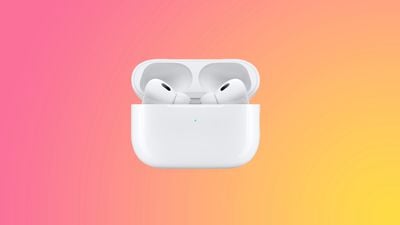

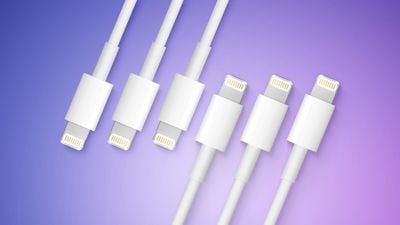

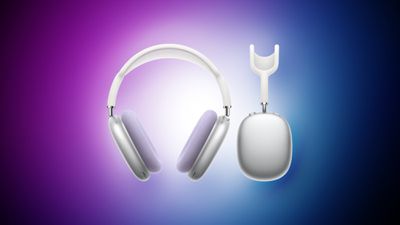
 Note: MacRumors is an affiliate partner with Samsung. When you click a link and make a purchase, we may receive a small payment, which helps us keep the site running.
Note: MacRumors is an affiliate partner with Samsung. When you click a link and make a purchase, we may receive a small payment, which helps us keep the site running.
